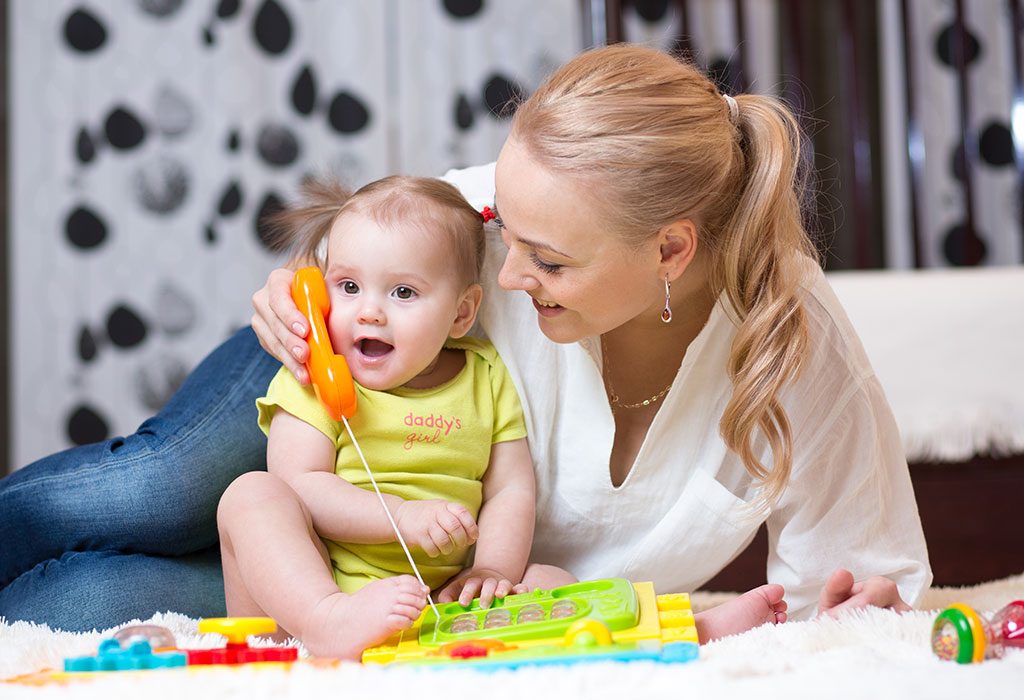In this Article
Be it with your parents, your siblings, relatives, or any other friends, there will always be times where you spent tickling each other or engaged in games and playful tickle fights till somebody laughed their guts out and let it go. All of these are how we have all grown up. But very few have wondered is tickling bad for toddlers or is it a good way to bond with them. For most people, since tickling results in causing that person to laugh uncontrollably, that ought to be a good sign. But studies have indicated that it may not always be the case. There is more than meets the eye in that case, and you might have heard of incidents where tickling was painful for someone.
Can You Tickle a Baby?
Tickling kids can get them laughing but the same cannot be necessarily said about babies. A few babies may end up giving you a vague smile but most of them may not immediately like the sensation, similar to many adults as well.
Young babies can barely communicate what they feel. So even if they do not like the sensation, there is no way they can let you know, apart from the times, when it gets too intense and they might burst out crying. While light touches on the belly and the heel are fine to invoke the sensations, the proper tickling should be strictly reserved until your little one grows up to be a kid who can communicate well.
What’s The Problem with Tickling?
On encountering the thought that tickling might be problematic for your kids, most parents cannot truly recognize what the problem is. Your child is laughing when you tickle him so that is bound to make him happy, right?
Well, not exactly. Tickling is very close to a reflexive or automated response programmed in the body. When tickled, the person’s brain receives signals that cause it to react in a way so as to express the emotion in a manner of laughter. Many children do complain of a painful experience even if they were laughing. And since the response is automated, young kids may not be able to stop the laughter and tell you to stop tickling. This is further worsened by a societal tendency to tickle a person further if they try to escape or ask you to stop because they are laughing while they do it.
Does Tickling Help Your Baby to Talk?
Knowing exactly when babies start to get ticklish, it begs the question if there is any merit to tickling a baby. Parents do come across studies that indicate that tickling can entice a baby to start talking. But that is half of the truth.
Tickling is a strong form of physical contact with a person, resulting in uncontrollable laughter. However, light sensations in the body can cause one to feel ticklish, too. Babies have a strong sense of touch in the early stages of their infancy. And these touch sensations are linked to the development of their language skills.
Therefore, assisting your little one in beginning to form tiny vague words can be effective when you engage in simple light touches to his body. By repeating simple words repetitively such as “aaa” and touching his chin, your baby can learn to open his mouth and say “aaa” over a period of time. The same can be done in numerous other ways.

Can Tickling Cause Stuttering in a Child?
Thankfully, the rumour of ticking causing stuttering in a child does make many people stop tickling their kids endlessly. However, it is a myth and there is no semblance of truth to it. Stuttering may begin to manifest in the early ages of the child’s development, but the actual cause is yet to be conclusively discovered.
Alternate Ways to Bond Physically with Your Child
If your goal is to bond with your child, there are many other ways to do so instead of tickling them.
- Kiss your little one on his nose or play a game of finger men walking across his body
- Body contact can be established strongly if you make use of some baby oil and massage your little one regularly
- As your child grows up, you can read books to him and establish an enhanced level of parent-child bond
While engaging in tickling matches might have been your childhood, it is necessary to know that tickling a baby does hurt them at times. Establishing better and funnier ways of engaging with your little one can give you the benefit of bonding you so desire.









